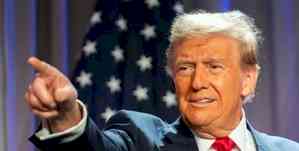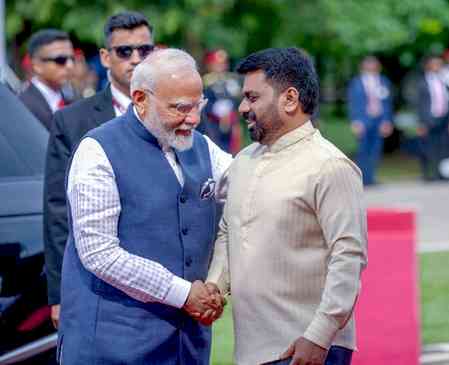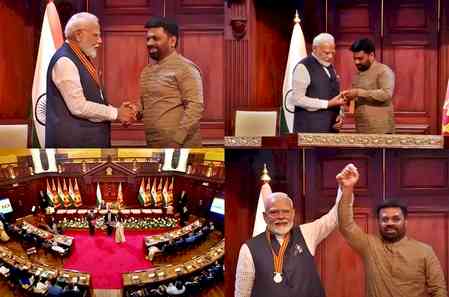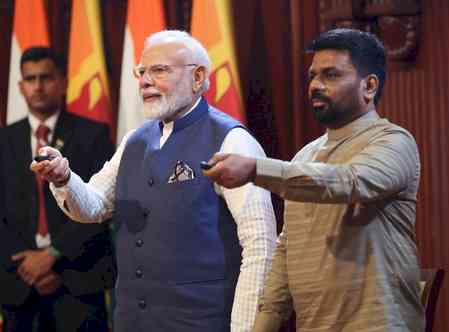Donald Trump plans to announce auto tariffs on April 2
US President Donald Trump will announce tariffs on imported cars in early April in what could be a direct setback to the South Korean automotive industry.

Washington, Feb 15 (IANS) US President Donald Trump will announce tariffs on imported cars in early April in what could be a direct setback to the South Korean automotive industry.
The president announced the plan to unveil auto tariffs on April 2 as he has been using tariffs as a key tool to shrink America's trade deficit, boost domestic manufacturing and achieve other policy goals, including preventing the inflow of unauthorised migrants and drugs.
Amid Trump's tariff-based policy push, fears have been swirling that Asia's fourth-largest economy might be put into his administration's crosshairs, given that South Korea's trade surplus with the United States reached $55.7 billion last year, reports Yonhap news agency.
"We're going to do it on April 2, I think. Is that right?" Trump asked his aide, who said, "That's right."
The president did not elaborate on whether he will just announce the tariffs on April 2 or they will take effect that day.
The U.S. is a top auto export market for South Korea. Of South Korea's total car exports last year, exports to the U.S. were tallied at $34.7 billion, or 49.1 percent. No U.S. tariffs have been imposed on Korean cars since 2016 under a bilateral free trade agreement.
The auto tariff announcement came as the Trump administration is pushing to roll out "reciprocal" tariffs on U.S. imports to match what other countries impose on American goods. It has already announced a plan to impose 25 percent tariffs on steel and aluminum imports, starting March 12, while weighing new tariffs on chips and pharmaceuticals.
Trump's tariff announcements are being keenly followed by South Korean officials amid concerns that policy coordination with Washington could be slower than before in the midst of political uncertainty in Seoul caused by impeached President Yoon Suk Yeol's martial law attempt in early December.
South Korean Foreign Minister Cho Tae-yul has said that he plans to have discussions on the tariff issue with U.S. Secretary of State Marco Rubio when the two sides meet on the margins of an international security forum in Munich, Germany, on Saturday.
Trump has already imposed a 10 per cent tariff on all Chinese goods coming into the U.S., while he temporarily paused the imposition of a 25 percent tariff on Canada and Mexico after the two countries agreed to step up efforts to prevent drug trafficking at their borders with the US.


 IANS
IANS 








